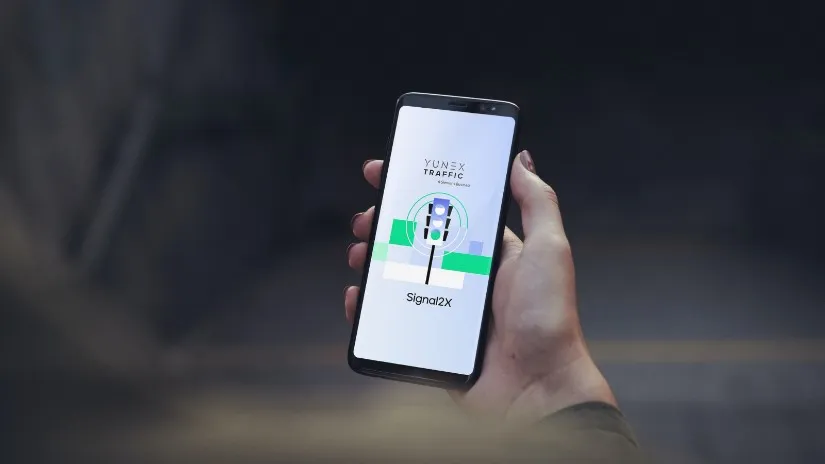
Yunex Traffic has launched an app which will allow road users to see the optimum speeds to travel in order to hit green lights.
Signal2X will be used in conjunction with a traffic light phasing system in the German city of Darmstadt.
Yunex is installing the traffic light phase assistant, which generates real-time traffic data, after a competitive tender process.
Seen for the first time at Intertraffic 2022 in Amsterdam, Signal2X gives drivers, cyclists, buses and trams receive 'green wave' forecasts in real time.
City authorities launched Darmstadt Analytics - DAnalytics in 2018 to explore the use of data in traffic management to reduce congestion and improve air quality.
Information from the traffic light phase assistant is continuously fed back to the DAnalytics analytical platform where it is available as a database both for the central traffic computer and for traffic planning.
“The bad air in our cities endangers our health and the environment," says Stefan Eckert of Yunex Traffic Germany.
"A large part of the emissions can be traced back to mobility. We therefore need intelligent traffic systems that no longer control traffic based on static systems, but rather orchestrate it according to the situation."
As part of the project, smart sensors and intelligent traffic technology are installed to generate real-time traffic data and used to develop effective traffic control measures. Yunex says these components will be tested in a cooperative real-world laboratory (which includes public transport, cars, bicycles and pedestrian traffic) by autumn and then implemented throughout the city.
After that, Yunex says it plans to roll out the system in other cities and countries.
The app will be available free of charge for smartphones with iOS and Android operating systems in the App Store and, for the first time in Germany, also for Apple CarPlay and Android Auto.
Yunex says: "In the long term, the speed recommendations should not only be available via the app, but also integrated into common navigation systems via a cloud system."
The company adds that the traffic light phase assistant uses intelligent algorithms to calculate the optimal speed for driving on the green wave, with reliability "up to 99.8%".










